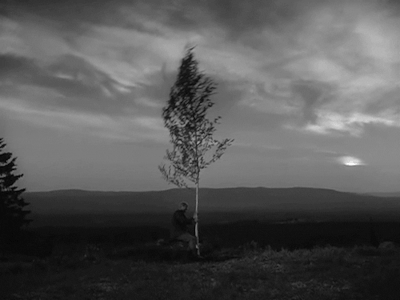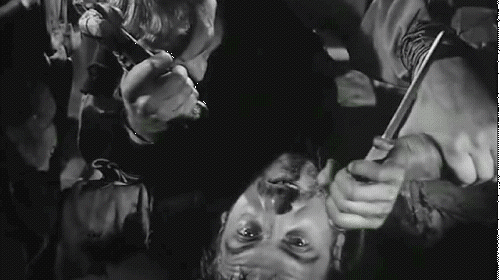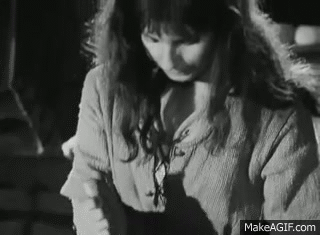JANUARY
Sunday 5
SF Art & Film’s
TWELFTH NIGHT
540 Alabama Street
6:30PM
Our annual Twelfth Night party! Join us for live music, champagne & egg nog, the Twelfth Night cake and the crown the comes with it!
Bring a friend and celebrate the end of the holiday season with Art & Film.
Friday 10
Cine Club @ SF Art Institute (800 Chestnut Street)
Alice Rohrwacher's HAPPY AS LAZZARO (2018, Italy)
A good-hearted peasant is taken advantage of by both his neighbors and the wealthy family that employs him. What begins as a neo-realist story of class persecution turns into something both surprising and original that explores class divisions, exploitation and the nature of grace.
Why we’re showing this film:
The first half of the film is a straightforward look at conditions of people living in poverty in Italy, first on a rural farm, later in the city, Halfway through, the film switches radically to a dreamlike world of magical realism. The film explores ideas of transcendence and grace that are seldom seen in contemporary films. Its enigmatic imagery and directorial ingenuity sticks in your head.
About the director:
Rohrwacher was born in Italy and studied literature and philosophy in college. Her first film was a documentary, but her second film Heavenly Body opened to great acclaim at Cannes. Her second feature, The Wonders, received the Grand Prix at Cannes in 2017, and was followed by Lazzarus.
Saturday 11
Art Saturday at
Downtown Art Galleries
We’re starting the year with tour of downtown art galleries, including the Berggruen, Fraenkel, Koch and Haines. A great way to begin your year of art in 2020!
11 am Meet in the Howard Street entrance of SFMOMA by the JR mural of San Francisco.
11:15 Tour downtown art galleries
1 pm Lunch at Super Duper
Art Saturday lunches are generously sponsored by Mission AOC I, LLC.
Friday 17
Cine Club @ SF Art Institute (800 Chestnut Street)
Bergman's THE VIRGIN SPRING (1960, Sweden)
A tale of betrayal and revenge is made real in the hands of a great filmmaker. Set in the middle ages, a farmer sends his beautiful daughter on a short pilgrimage. The tragic result leads him to take matters into his own hands.
Warning: graphic violence and depiction of rape
Why we show this film:
The Virgin Spring is an example of Bergman at his simplest—powerful, visually arresting, and well performed. It also gives us a view of the middle ages with all its struggles between Christianity and paganism. Young girls caught in this world had precarious futures. Superstition and ignorance prevail—and the forces of darkness triumph. An example of how history can teach us timeless messages in the hands of a master director.
About the director:
Bergman is one of the filmmakers that define the middle of the 20th century, with a career full of significant works from the middle of the 1950’s through the 70’s. His influence on modern filmmakers has been simply enormous. Bergman began in film in Sweden during the 1940s, first as an assistant, then as a writer. Following 1957’s The Seventh Seal, which won Cannes and brought him international fame, he produced a yearly output of thoughtful, visually bold and psychologically profound works that kept him at the head of the class. In 1976 however he was arrested for income tax evasion. It was a traumatic event which left him with a nervous breakdown and a sentence in a hospital. He left Sweden for a number of years and made films abroad. Long past his zenith as a film maker he surprised all with his last film Fanny and Alexander, a film that was an enormous critical and popular success throughout the world. Bergman retired from film and took over as head of the Royal Theater in Stockholm, where he directed plays and is considered one of a handful of the finest stage directors in the world.
Friday 24
Cine Club @ SF Art Institute (800 Chestnut Street)
Andrei Tarkovsky's ANDREI RUBLEV (1966, Russia)
THIS SCREENING STARS EARLY AT 6:30 PM
This Cine Club is generously sponsored by Art & Film alumnus Andrei Svensson.
This may be the most challenging film we show, but it’s worth the effort! This film follows the life of a medieval painter of religious icons, filled with powerful imagery of earth, fire, air and water. It’s a breath-taking masterwork that remains the crowning achievement of this legendary director.
Warning: medieval violence, rape and animal cruelty.
Why we’re showing this film:
There is probably no other film that leaves such a big impact on our students. Andrei Rublev is more complex and breathtaking, more frustrating and beautiful than anything else we show, and this is why we love introducing it to you. The film is divided into sections, each covering an important step in an artist's life: leaving one’s mentor and striking out in the world, struggling to find one’s one style, struggling with ethical decisions, battling rejection and failure, loss of faith in oneself, and finally, the reaffirming of one’s faith. The last section of the film, a breath taking evocation of the casting of a cathedral bell, uses some of the most dazzling camera techniques in the history of film. It’s a film that makes you work hard as a viewer but rewards you every step of the way.
About the director:
A select few filmmakers become legends in their own time and Tarkovsky was one. His films are often extraordinarily ambitious, epic in scope and deeply philosophical. He is the most radical and unorthodox of all Russian filmmakers at the time. How could he get away with this in a communist regime? As his films became more obtuse, difficult and haunting, his reputation rose and brought him legions of fans.
Tarkovsky became the symbol as the filmmaker as artist: intense vision and no compromises. He didn’t make many films, Ivan's Childhood, Solaris, The Mirror, Stalker, Nostalgia and The Sacrifice are the main ones. He was the son of a well-known Russian poet and his father’s poetry is often used as voice over in his films. Andrei Rublev stands apart as a violently realistic depiction of life in the Middle Ages in Russia. It was banned by the Soviets from 1966 through 1971 (they knew it must somehow be dangerous). When in made its debut at Cannes, it caused a sensation and the film became an icon. Tarkovsky fled Russia and finished his last three films in Europe.
Saturday 25
Art Saturday @ SFMOMA
SOFT POWER at SFMOMA
We'll start Art Saturday this week with special gallery show of films and sculptures from the famous dada artist Man Ray. Rarely do we see a collection of this kind featuring such variety of works from one of the most innovative artists working in Paris and New York in the 1920s. Don't miss it!
For our first visit to SFMOMA in 2020 year we're going to see SOFT POWER, a show about the ways in which artists use art to explore their roles as citizens and social actors. Soft Power is a term used to describe how a country’s “soft” assets such as culture, political values and foreign policies can be more influential than violence or coercion. A powerful show that comes at a critical moment for so many political and social issues.
11:00 am Meet at SFMOMA (inside the Howard St entrance by the big JR mural of San Francisco.)
11:15 am Tour Man Ray show at Gagosian Gallery
11:45 am Return to SFMOMA for Soft Power
1:15 pm We'll finish with a picnic lunch in Yerba Buena Gardens.
Friday 31
Cine Club @ SF Art Institute (800 Chestnut Street)
Luchino Visconti's DEATH IN VENICE (1971, Italy)
This screening generously sponsored by Robert Walker & Ernest Phinney.
While on vacation in Venice, famous composer becomes obsessed with a boy on the beach and it causes him to discover emotions he has long tried to repress. Haunting, visually profound and full of Mahler’s unforgettable music.
Why we’re showing this film:
When film directors discuss the films of great visual beauty this film is usually mentioned. It is considered the last masterpiece in Visconti’s considerable repertoire. The film’s plot, based on the novel of the same name, is simple, but the extraordinary attention to detail and mood make it a hallmark of romantic, thoughtful film. It requires patience, but its colorful characters, gorgeous panoramas, and heavy atmospheres bring you to a long gone era in one of the most beautiful cities in the world.
About the director:
Born into a noble Italian family, Visconti’s ancestors stretched back to the crusades. In 1943 he directed his first film, Ossessione, which laid the foundations for neo-realism. He followed it with a series of successes—La Terra Trema, Senso and Rocco and His Brothers—which brought him international renown. His first films fit clearly into the neo-realist formulas. His interests turned to epic themes and extravagant historical panoramas (The Leopard, The Damned, Death in Venice) influenced by his role as one of the leading theater and opera directors in Europe. He is considered one of a handful of Italian film masters.



















